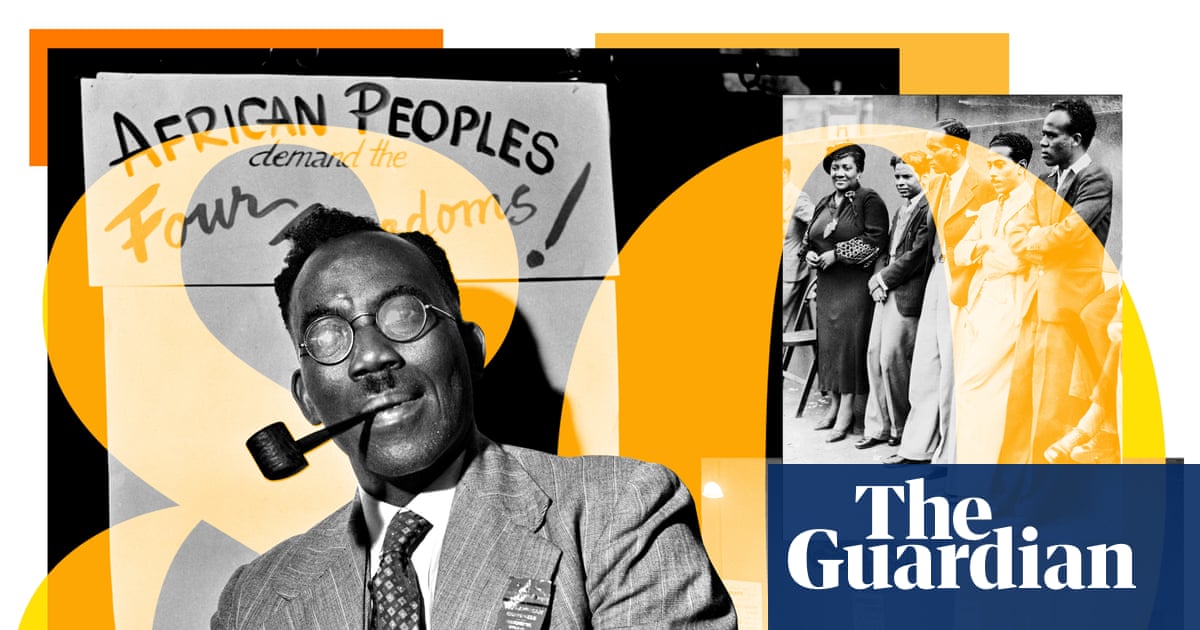On the main road heading south out of Manchester city centre, the excitement and enthusiasm are tangible. Oxford Road has changed a lot since October 1945. While its grand buildings remain, the wartime bombsites and smog are long gone. Much of Chorlton-on-Medlock, the residential area it bisected has been lost to postwar clearances and replaced by university complexes.
But to the young people gathered in the foyer of the Contact Theatre, the events of 80 years ago were full of relevance. The dance show they came to see – See My World: Homage, staged by the choreographers Joe Price and Kieron Simms a fortnight ago – was just one of an unprecedented number of events to celebrate the anniversary of the fifth Pan-African Congress, which took place less than a mile away at the former town hall.
The congress was a seismic moment for Black countries during their fight for independence from colonial rule and helped to shape the destiny of millions. But for years the event was an under-recognised chapter in Manchester’s radical history, spurring the late community leader Kath Locke, among others, to campaign for a commemorative plaque outside the building in the 1980s.
View image in fullscreen Charles Lauder (left) speaks to Tunde Adekoya at an 80th anniversary event. Photograph: Albert/AKMVisuals
Now, against a backdrop of increasing unity between African-Caribbean countries, resurgent anti-Black sentiment and increased awareness of the debt Manchester owes to slavery and colonialism, the congress’s message of Black unity as well as political and economic liberation
Continue Reading on The Guardian
This preview shows approximately 15% of the article. Read the full story on the publisher's website to support quality journalism.
